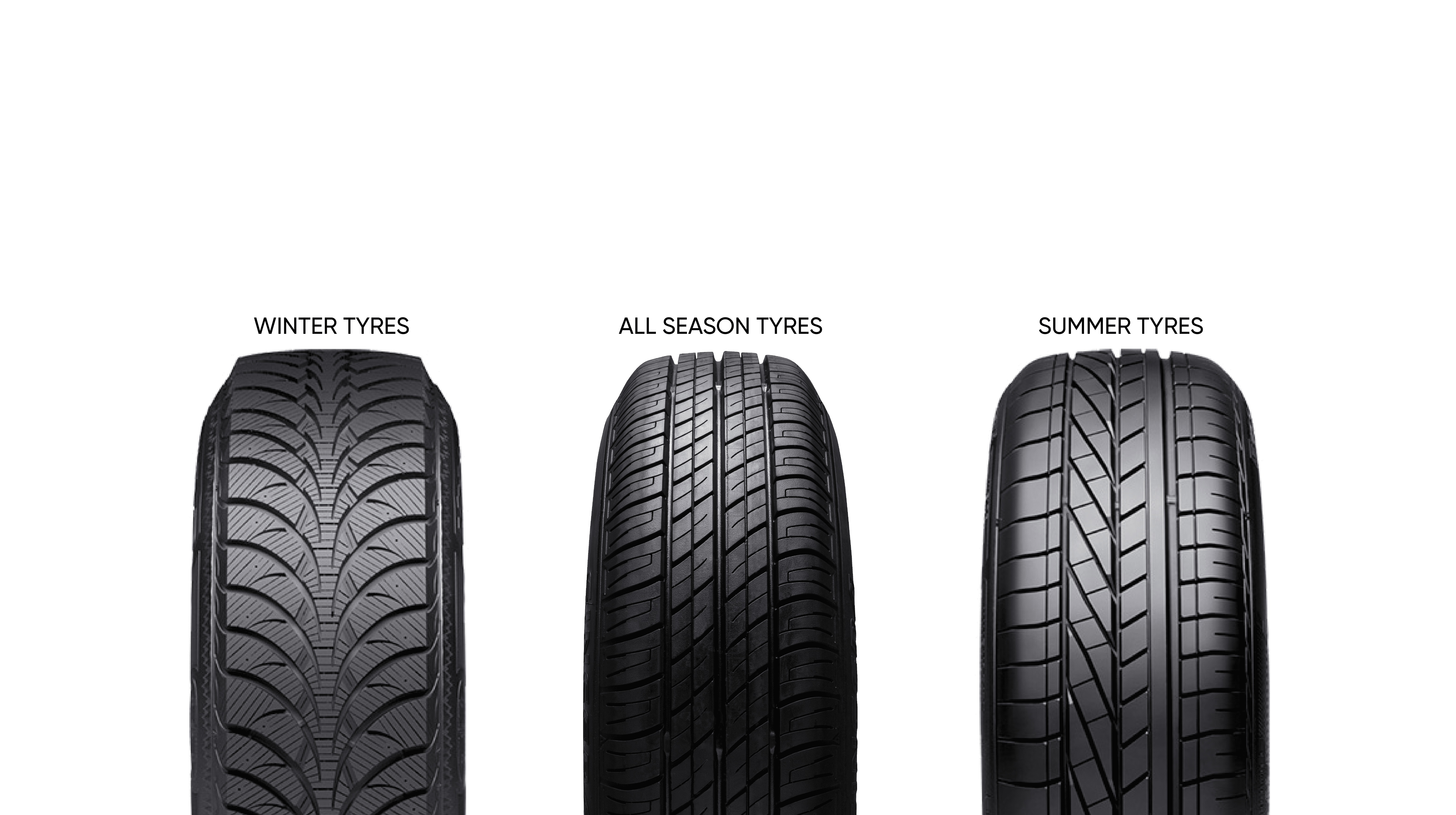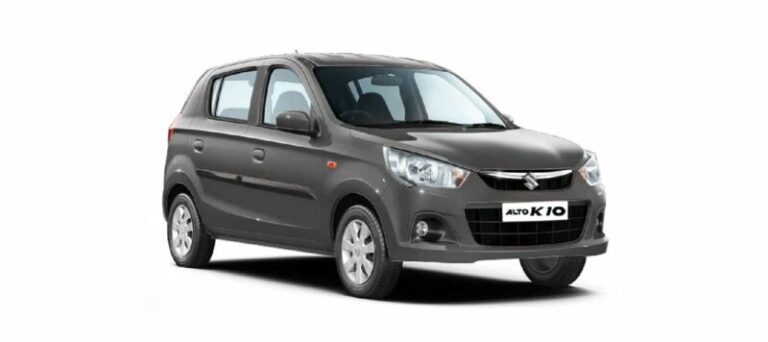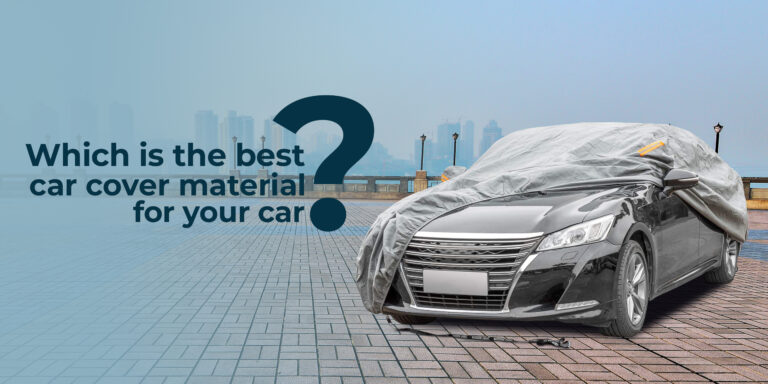
For many of us, a tyre is a basic air-filled ring-shaped object that helps our vehicle move. But, if you’re finding the best tyres for your vehicle, you should know more about them. Why? Because these basic ring-shaped objects usually go through lots of challenges. As a result, we’ve different sets of tyres to overcome various types of tackles. Based on the environment and conditions where the tyre is in use, we usually have three types: Summer Tyres vs Winter Tyres vs All-Season Tyres.
We know you’re thinking about whether you should buy a summer tyre or go for winter tyres and it’s not easy to pick just one.
But, stay assured as we’re sure that by the end of this blog, you’ll be ready to choose the perfect set of tyres. Remember, each type of tyre has its particular pros and cons. Thus, it’s necessary to understand both capabilities and limitations of all three types of tyres.
So, first, let’s learn the basics of these tyres and then we’ll decide which one is the best.
Summer Tyres:
Summer Tyres are known for their excellent grip and handling on dry and wet surfaces. Also, these tyres have a dedicated rubber compound which makes them an ideal choice in warmer conditions. Moreover, with reduced rolling resistance, Summer Tyres offers better fuel efficiency and produces less noise on roads.
Winter Tyres:
If Summer Tyres are ideal for dry surfaces, then Winter Tyres dominates the surface covered with ice or snow. To keep the tyres flexible in cold conditions, Winter Tyres contain natural rubber as their tread compound. So, even if the temperatures fall below 7 degrees celsius, Winter Tyres will never harden.
All-Season Tyres:
With the benefits of both Summer and Winter Tyres, All-Season Tyres are a hybrid category. Thus, if you’re someone who lives in a region with mild weather conditions, then you might try sticking with them. However, they’re still not a great choice as you might lose some grip in warmer conditions and its rubber compound might get hardened in the winters.
Summer Tyres vs Winter Tyres
We’re moving on to comparing different types of tyres, and we’ll start with Summer Tyres vs Winter Tyres. However, remember that apart from environmental conditions, only two factors can distinguish these tyres:
- Rubber Compound
- Tread Pattern
As mentioned earlier, Winter Tyres contain natural rubber as their rubber compound. Due to this, they offer more flexibility in extreme cold conditions and don’t get hardened. On the other hand, Summer Tyres have a much harder rubber compound which can become brittle in cold temperatures. Likewise, Winter Tyres have a much softer rubber compound, making them a poor choice in warmer conditions.
Winter Tyres have a deep tread pattern and thousands of sipes (tiny grooves) in their tread blocks. Moreover, these grooves can bite into the snow and offer a better grip on the surface. Another reason why they have a deep tread pattern is that nothing grips snow better than snow.
Thus, even if the snow intensifies, it still offers better and adds traction to push the vehicle forward. On the other hand, a Summer Tyre has fewer sipes but with specially designed tread bars. These tread bars allow our Summer Tyres to provide more grip on a wet and dry surface by minimising the aquaplaning. Lastly, Summer Tyres usually have a simple block-shaped tread pattern which ensures better handling and impacts the braking distance.
Our Tip*:
If you’re living in a region with extreme weather, it’s best to have both Summer and Winter Tyres sets.
Summer Tyres vs All-Season Tyres
When it comes to All-Season Tyres, they usually offer a well-balanced performance in both cold or warm conditions. Moreover, these tyres have moderate tread depth and slightly rigid rubber compound to provide extended tread life. While using All-Season Tyres in warmer conditions, you might get an all-rounded performance, but it won’t outperform Summer Tyres. Thus, if you’re comfortable sacrificing some steering and cornering capabilities, then All-Season Tyres aren’t a bad option.
However, if we reverse the situation and test both tyres in a colder temperature, then All-Season Tyres will perform better. The sole reason behind it is the rubber compound of All-Season Tyres. While its slightly rigid rubber compound might steal some grip, it also offers an acceptable performance in cooler conditions. But, remember that this hybrid category of tyres isn’t ideal for a freezing condition such as temperature below 7 degrees celsius.
Winter Tyres vs All-Season Tyres
From heavy snowfall to black ice, roads in extremely cold conditions can throw anything in front of your vehicle. But, due to the rubber compound and specially tailored tread pattern, Winter Tyres become the ideal choice in such situations. Moreover, as All-Season Tyres are a hybrid solution with limited tread depth, they cannot offer such a firm grip on icy surfaces. For instance, you can count All-Season Tyres as a pair of everyday tennis shoes. You can indeed wear them anytime, but they’re not the ideal choice during the summer or winter seasons.
Thus, if you’re living in a frigid region and feeling confused in Winter Tyres vs All-Season Tyres, then Winter Tyres should be your choice. Likewise, if you belong to an area with a moderate climate, All-Season Tyres can offer a tremendous year-round performance.
Our Tip*:
If you’re going to mount Winter Tyres, then it’s best to change out all tyres and not only front or rear tyres. Changing the only front or rear set of tyres can increase the chances of skidding or losing traction.
Frequently Asked Questions
Q1. Should I buy Summer or Winter Tyres?
Ans. During the warm conditions or when the temperature is above 7 degrees celsius, we’d recommend you to use Summer Tyres. However, if you live in an icy region, then Winter Tyres are the right choice.
Q2. Is it OK to use Summer Tyres in the winter?
Ans. No, it’s not safe to use Summer tyres in the lower temperatures as the Summer Tyres have much harder rubber compound. During winters, this rubber compound can become brittle, making your drive pretty unsafe.
Q3. Can Summer Tyres be used all year?
Ans. As Summer Tyres offer better handling and grip on both dry and wet surfaces, they’re the ideal choice during summer or monsoon season. However, we’d not recommend using summer Tyres during the winter season as they’re unsafe under such conditions.
Q4. What’s the major difference between a Summer Tyre and Winter Tyre?
Ans. The most significant difference between a Summer Tyre and Winter Tyre is their rubber compound and tread pattern. A Summer Tyre has a harder rubber compound with a simple box-shaped tread pattern that can’t perform well in snowy regions. On the other hand, Winter Tyres have a natural rubber compound and come with a deep tread pattern that offers excellent grip on snow.
Q5. Are All-Season Tyres as good as Winter Tyres?
Ans. While All-Season Tyres can offer a well-balanced performance, they certainly can’t perform as good as Winter Tyres in lower temperatures.
Q6. Can I use Winter Tyres all year round?
Ans. While All-Season Tyres can offer a well-balanced performance, they certainly can’t perform as good as Winter Tyres in lower temperatures.
Q7. Should I get All-Season or Summer Tyres?
Ans. If you live in a particular area where the overall climate is relatively moderate, then All-Season Tyres are a good choice. However, if summers are pretty extreme in your region, it’s best to use Summer Tyres only.
Q8. Are Summer Tyres quieter than All-Season Tyres?
Ans. Yes, Summer Tyres make much less noise as they’ve fewer sipes and tread slits than All-Season Tyres.
Q9. What tyres give the quietest ride?
Ans. Summer Tyres can offer you the quietest rides as they have a low number of sipes or tiny grooves.
Q10. Should all four tyres be the same?
Ans. Yes, it’s best to have all four tyres the same (Summer Tyres/Winter Tyres/All-Season-Tyres) as having a different set of tyres on front and back can potentially lead to an accident.
Q11. Is it OK to have different tyres on the front or back?
Ans. No, you should always change both front and rear while changing out the tyres according to the season. Remember that changing only front set or rear tyres can increase the risk of skidding.
Takeaway
Lastly, we can conclude that choosing between Summer or Winter, or All-Season Tyres depends on your needs. If you’re a regular driver living in a region with a moderate climate, then All-Season Tyres are the best choice. However, if there’s a period in your region where the roads are full of snow flurries, then only Winter Tyres are the way to go.
Likewise, if the summers are too hot in your region, then Summer Tyres are a better option over All-Season Tyres as they can offer better handling and cornering. Also, if you’re going to mount a new type of tyres on your vehicle, then always change both front and rear sides. We hope that finally, you’re in a position to make the right decision and choose the best tyres for your vehicle.
Always remember that safety is a choice we make, so stay safe and happy driving!








